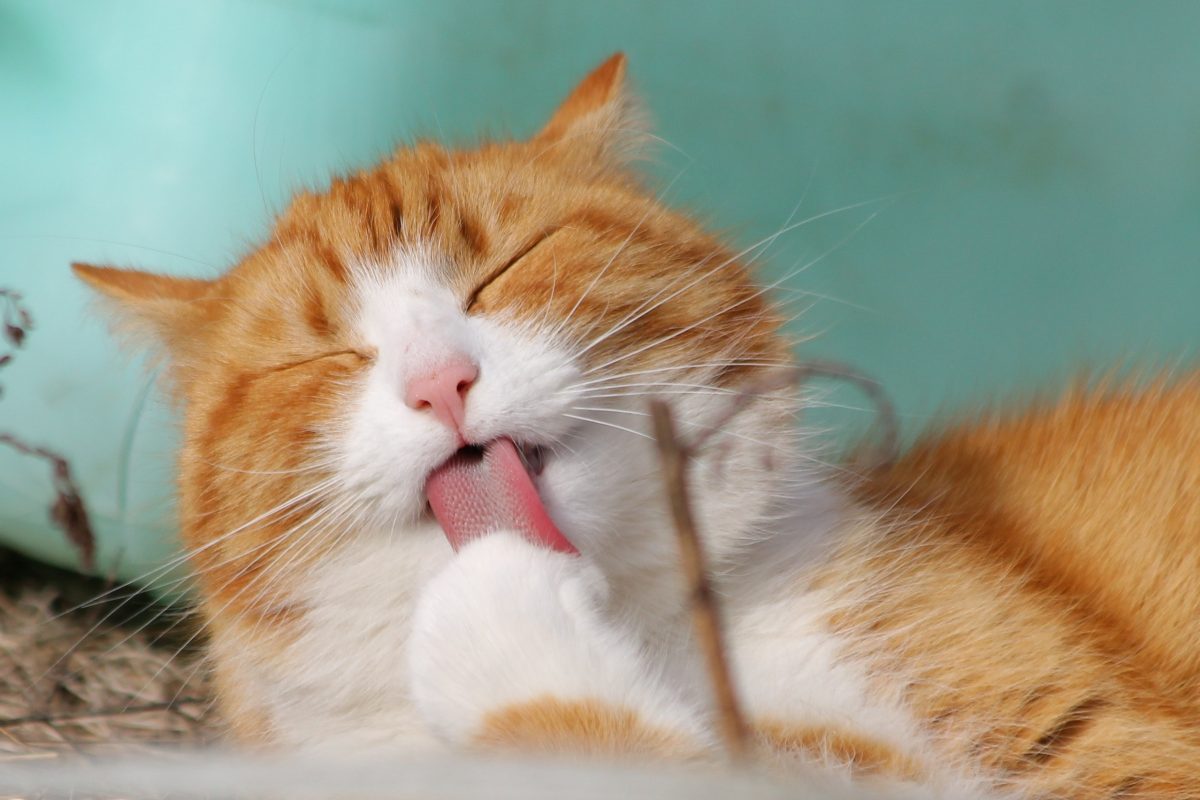
Why Do Cats Groom So Frequently? – Fastidious Felines!
14 Feb 2020.
Table of contents
Cats groom to keep themselves clean!
This may sound obvious, but it is the main reason that cats groom and lick themselves after almost every meal and toilet visit—in order to remove the scent of food or faeces. This is an instinctive response that domestic cats have retained, but in the wild this served to protect from potential predators.
For skin and coat health
Cats’ tongues have little barbs on them, which stimulate the glands at the base of each hair follicle. The oils these glands secrete help maintain a glossy coat. They also help to detangle the thick dense undercoats seen in breeds such as Ragdolls or Persians.
To keep cool
Cats do not have sweat glands all over their body like people do. Cats largely rely on saliva evaporation on their fur in order to maintain the right body temperature and help cool them down in hot environments.
To help form social bonds
Cats will lick other cats or even their humans in order to mark their scent. It is also a significant sign of social acceptance and bonding and therefore should not be discouraged.
To clean injuries
Cats will lick at injuries to remove dirt and the scent of blood. This is because in the wild this would make them vulnerable to being tracked by predators. Whilst this may help for an initial clean, owners need to understand that cat’s tongues don’t have anti-sceptic properties. Continued grooming can actually make a cat’s wounds worse so it’s best to get your vet to check them.

When should we assist in our felines beauty regime?
For the most part, many cats will not require much assistance with their personal beauty regime until they get a bit older where conditions like dental disease and arthritis may make grooming trickier. It can be quite distressing for a cat if their coat becomes dishevelled and unkempt, so helping them with a gentle soft bristle brush will improve their coat, their skin health and also importantly their bond with you. Longhaired cats are slightly different in that they greatly benefit from daily brushing to help prevent matting, even from a young age. Ideally this grooming regime should be introduced as early as possible.
Can cats groom themselves too much?
In short the answer to this is yes they can! There are a number of scenarios where your cat may start grooming obsessively. This may happen to the point where they have created bald or sore spots. Stress is a common underlying cause and this can be caused by a number of things such as moving home, a new baby or even a new cat in the neighbourhood. Medical conditions such as skin disorders, parasite infections or allergies can also result in over grooming. Since the cat’s tongue is so abrasive, it can cause skin trauma with repeated licking which serves to perpetuate the irritation until you get into a cycle of excessive licking, skin damage and more over-grooming. It’s important in these situations to get a vet to investigate the potential causes and to treat the signs.

Next time you’re away, why not hire a lovely Cat in a Flat cat sitter to look after your kitty? Extra cuddles and grooming included!
- #catbonding
- #catcleaning
- #catgrooming
- #cathygiene
- #catinaflat
- #catlicking
- #catsitter
- #catsitting


